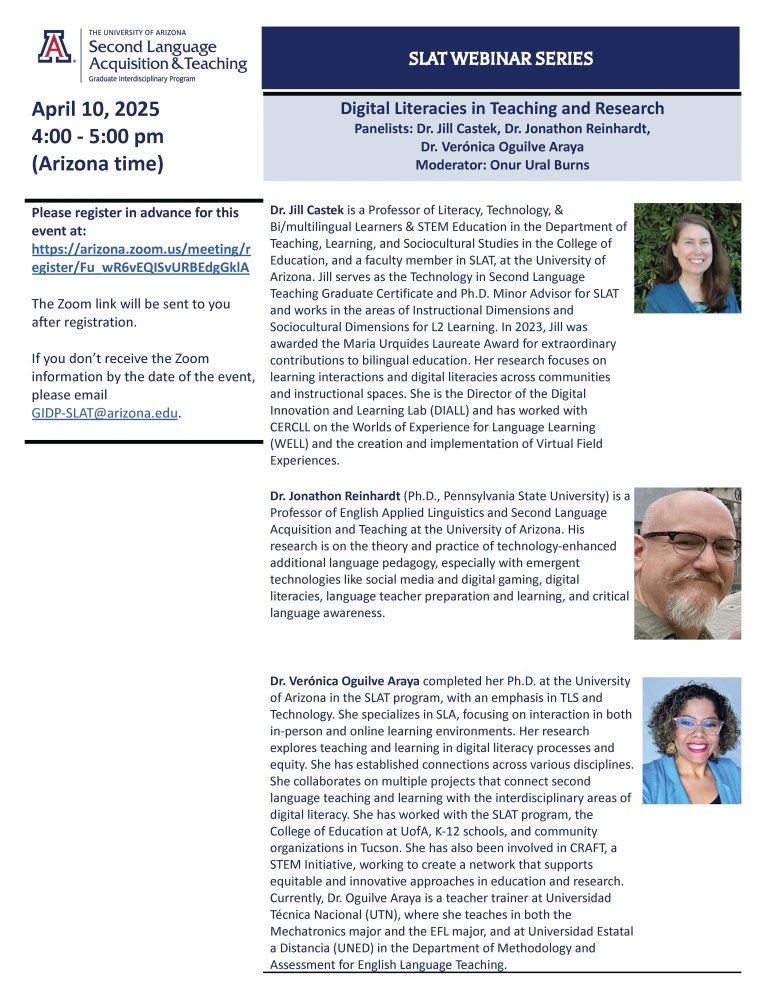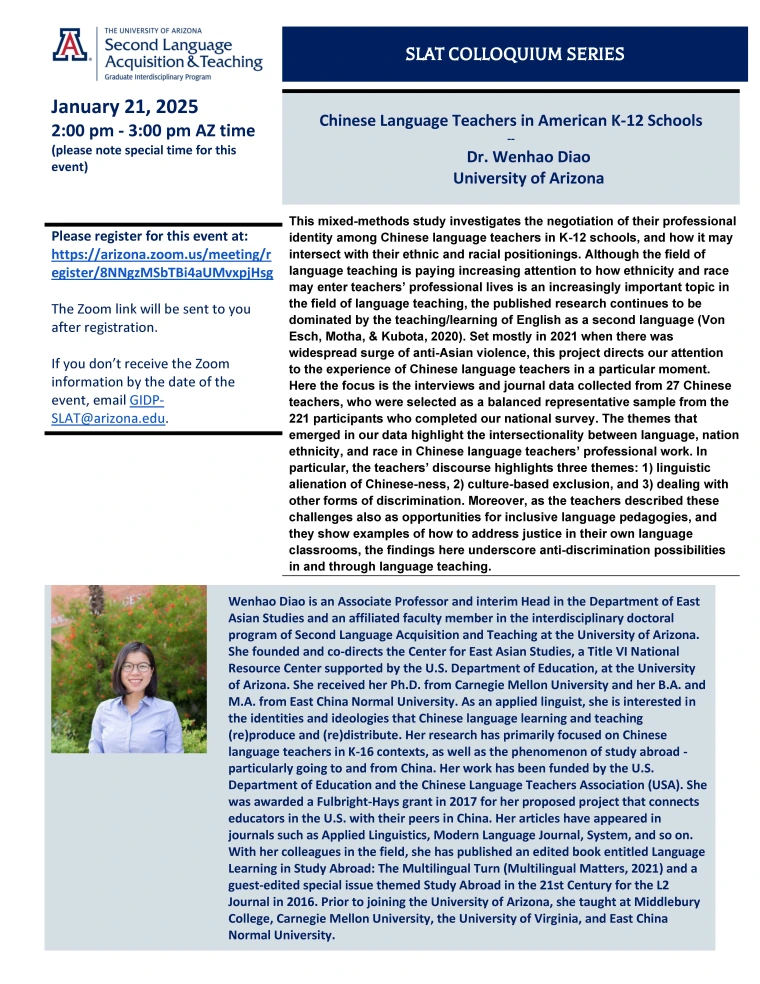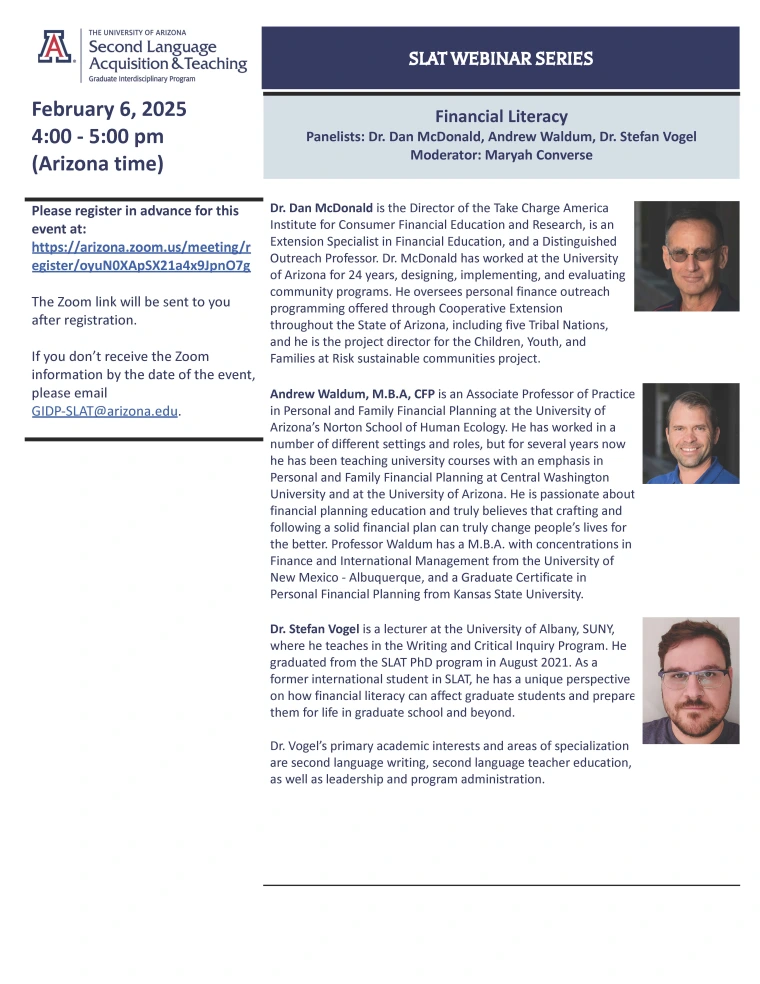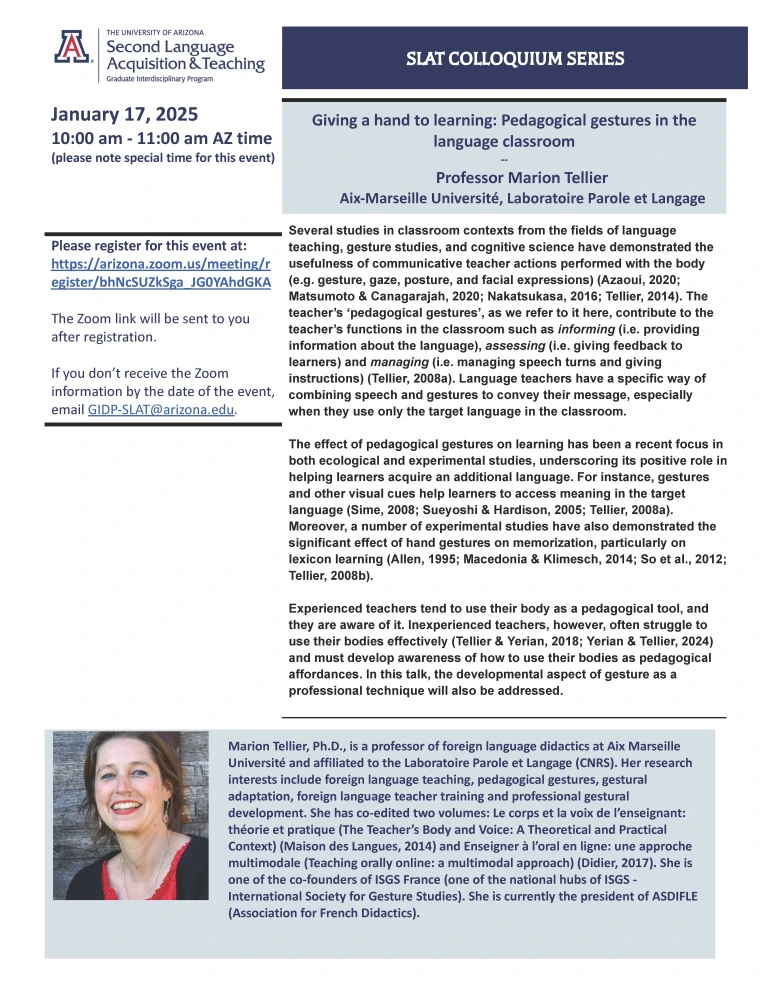Colloquium Title: Giving a hand to learning: Pedagogical gestures in the language classroom
Colloquium Abstract: Several studies in classroom contexts from the fields of language teaching, gesture studies, and cognitive science have demonstrated the usefulness of communicative teacher actions performed with the body (e.g. gesture, gaze, posture, and facial expressions) (Azaoui, 2020; Matsumoto & Canagarajah, 2020; Nakatsukasa, 2016; Tellier, 2014). The teacher’s ‘pedagogical gestures’, as we refer to it here, contribute to the teacher’s functions in the classroom such as informing (i.e. providing information about the language), assessing (i.e. giving feedback to learners) and managing (i.e. managing speech turns and giving instructions) (Tellier, 2008a). Language teachers have a specific way of combining speech and gestures to convey their message, especially when they use only the target language in the classroom.
The effect of pedagogical gestures on learning has been a recent focus in both ecological and experimental studies, underscoring its positive role in helping learners acquire an additional language. For instance, gestures and other visual cues help learners to access meaning in the target language (Sime, 2008; Sueyoshi & Hardison, 2005; Tellier, 2008a). Moreover, a number of experimental studies have also demonstrated the significant effect of hand gestures on memorization, particularly on lexicon learning (Allen, 1995; Macedonia & Klimesch, 2014; So et al., 2012; Tellier, 2008b).
Experienced teachers tend to use their body as a pedagogical tool, and they are aware of it. Inexperienced teachers, however, often struggle to use their bodies effectively (Tellier & Yerian, 2018; Yerian & Tellier, 2024) and must develop awareness of how to use their bodies as pedagogical affordances. In this talk, the developmental aspect of gesture as a professional technique will also be addressed.
Speaker Bio: Marion Tellier, Ph.D., is a professor of foreign language didactics at Aix Marseille Université and affiliated to the Laboratoire Parole et Langage (CNRS). Her research interests include foreign language teaching, pedagogical gestures, gestural adaptation, foreign language teacher training and professional gestural development. She has co-edited two volumes: Le corps et la voix de l’enseignant: théorie et pratique (The Teacher’s Body and Voice: A Theoretical and Practical Context) (Maison des Langues, 2014) and Enseigner à l’oral en ligne: une approche multimodale (Teaching orally online: a multimodal approach) (Didier, 2017). She is one of the co-founders of ISGS France (one of the national hubs of ISGS - International Society for Gesture Studies). She is currently the president of ASDIFLE (Association for French Didactics).
Location: Please register for this event at: https://arizona.zoom.us/meeting/register/bhNcSUZkSga_JG0YAhdGKA The Zoom link will be sent to you after registration. If you don’t receive the Zoom information by the date of the event, email GIDP-SLAT@arizona.edu.





